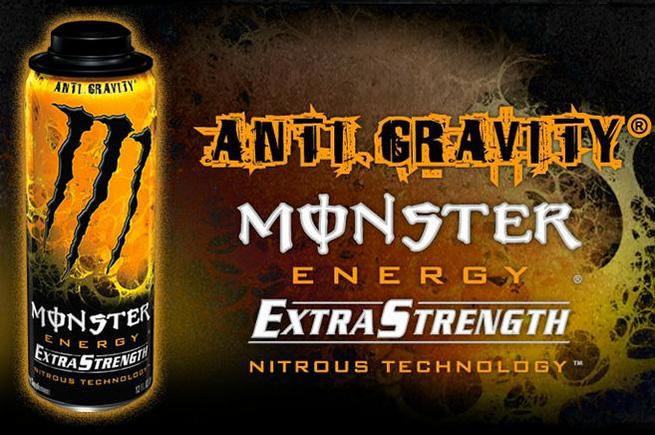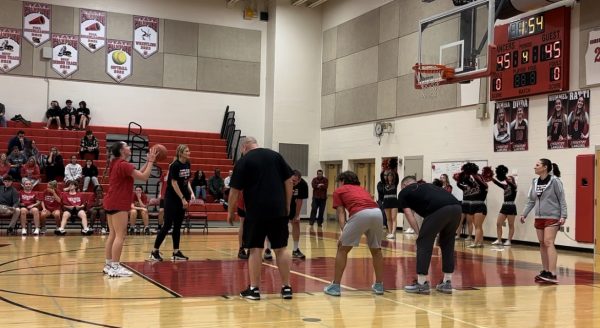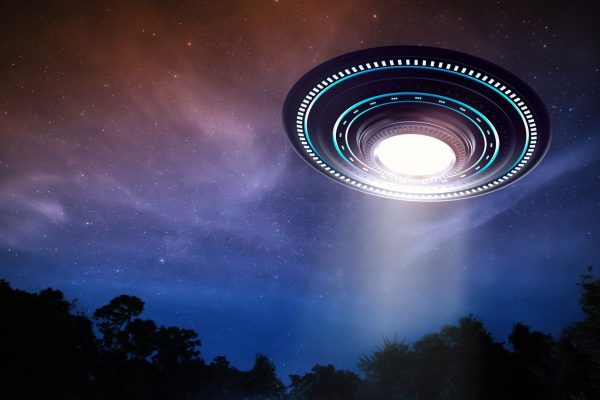The truth behind energy drinks
October 28, 2013
Soft drinks are out, energy drinks are in.
According to a recent survey conducted by Wells Fargo Securities, nearly 60% of convenience store retailers said they expect energy drinks will surpass carbonated soft drinks sales as soon as 2015. What is everyone actually drinking when they consume energy drinks? Are they safe?
Today according to Redbull.com, Red Bull is available in more than 165 countries and more than 35 billion cans have been sold so far. However, this is not the only energy drink available. There are many other drinks such as Monster, Amp, NOS, and Rockstar. Companies reel consumers in with advertisements featuring various celebrities, each often claiming that the drink gives them the necessary energy to win important sports matches. This is one of the reasons many teenagers are buying the products; student athletes want to compete as well as their role models and believe products endorsed by the celebrities will help them achieve this.
The effect is actually the opposite.
Energy drinks are high in carbs and therefore aren’t a good choice for competitive athletes. Carbs slow down the rate of fluid absorption, and make it harder to rehydrate during exercise. On top of that, they contain high amounts of caffeine which can reduce coordination and balance, the adverse effect of what athletes are striving for. Caffeine also increases heart rate and body temperature. Too much of this stimulant can cause an irregular heartbeat, excess sweating, jitters and anxiety, which is hardly ideal.
Coach Gilmore, head of the boys’ soccer team, has gone as far as forbidding his athletes to drink energy drinks. He says, “Energy drinks are extremely high in caffeine, which dehydrates you and can affect your game.”
Energy drinks have other negative effects. These include disturbing sleeping patterns and causing nausea, anxiety, depression, nervousness, irritability, and abnormal heart rhythms.
Although most of these are short term side effects, there can be long term effects of these drinks, especially for those with preexisting medical conditions.
The caffeine levels in energy drinks are so high that they can lead to birth complications and miscarriages in pregnant women. The high amounts of caffeine may produce adverse effects in individuals with current medical conditions, such as heart disease and a history of strokes. (http://science.howstuffworks.com/innovation/edible-innovations/energy-drink.htm). Most teenagers believe that energy drinks give them a worthwhile amount of energy and while they understand they aren’t healthy, they don’t understand exactly how bad the drinks are. Energy drinks can contain up to 80 milligrams of caffeine. By comparison, a 2006 study found that the average 12-ounce soda contains 18 to 48 mg of caffeine. While the FDA has set a caffeine maximum level at 71 mg for a 12-oz. soda, according to The Journal of The American Medical Association, it has not set maximums for energy drinks.
Energy drinks tend to be packed with a lot of sugars. Sugar causes energy levels to come crashing down once the sugar leaves the bloodstream. Although sugar creates energy, it is used up in a short period, and the drinker is often left feeling more fatigued than they were to begin with.
Although there are many downfalls to these drinks, there are a few positive effects. They can bolster the immune system, improve memory, regenerate and detoxify the liver, and help relieve stress and anxiety. Caffeine is the main supplement in most energy drinks. It is an appetite suppressant, and has been used effectively in the treatment of migraine headaches and to combat short-term drowsiness and fatigue. (http://science.howstuffworks.com/innovation/edible-innovations/energy-drink.htm)
However, these positive effects come from ingredients with such slight percentages in the drinks that their effects are fairly insignificant.
Energy drinks won’t cause the body any significant harm as long as they are drunk responsibly. However, there is nothing stopping someone from consuming drink after drink all day long, which then will pose harm to your body. If energy drinks are going to remain a pop culture and continue to be sold in the United States, the FDA needs to set regulations on the ingredients put into these drinks and lower the amounts of caffeine allowed in the products.













